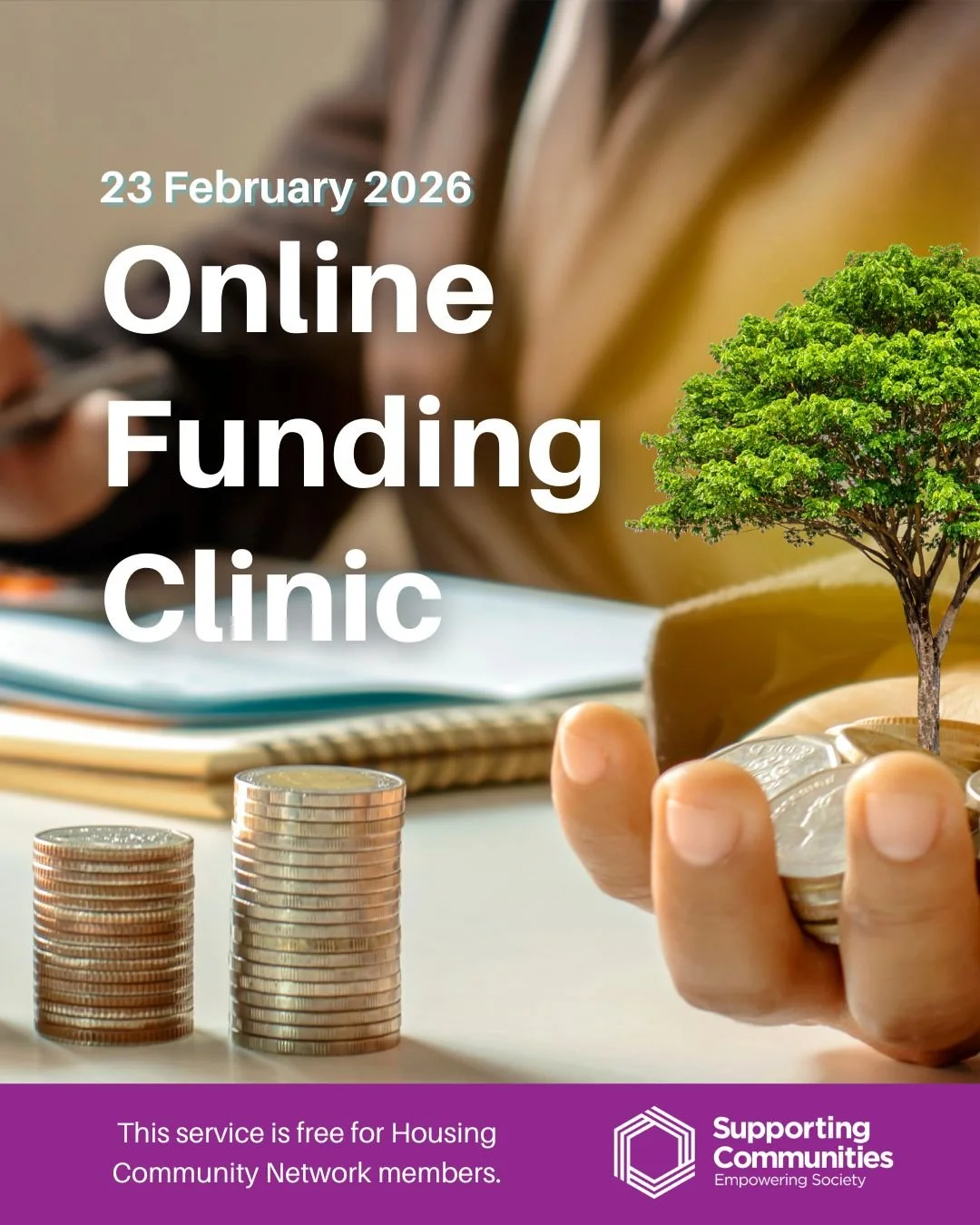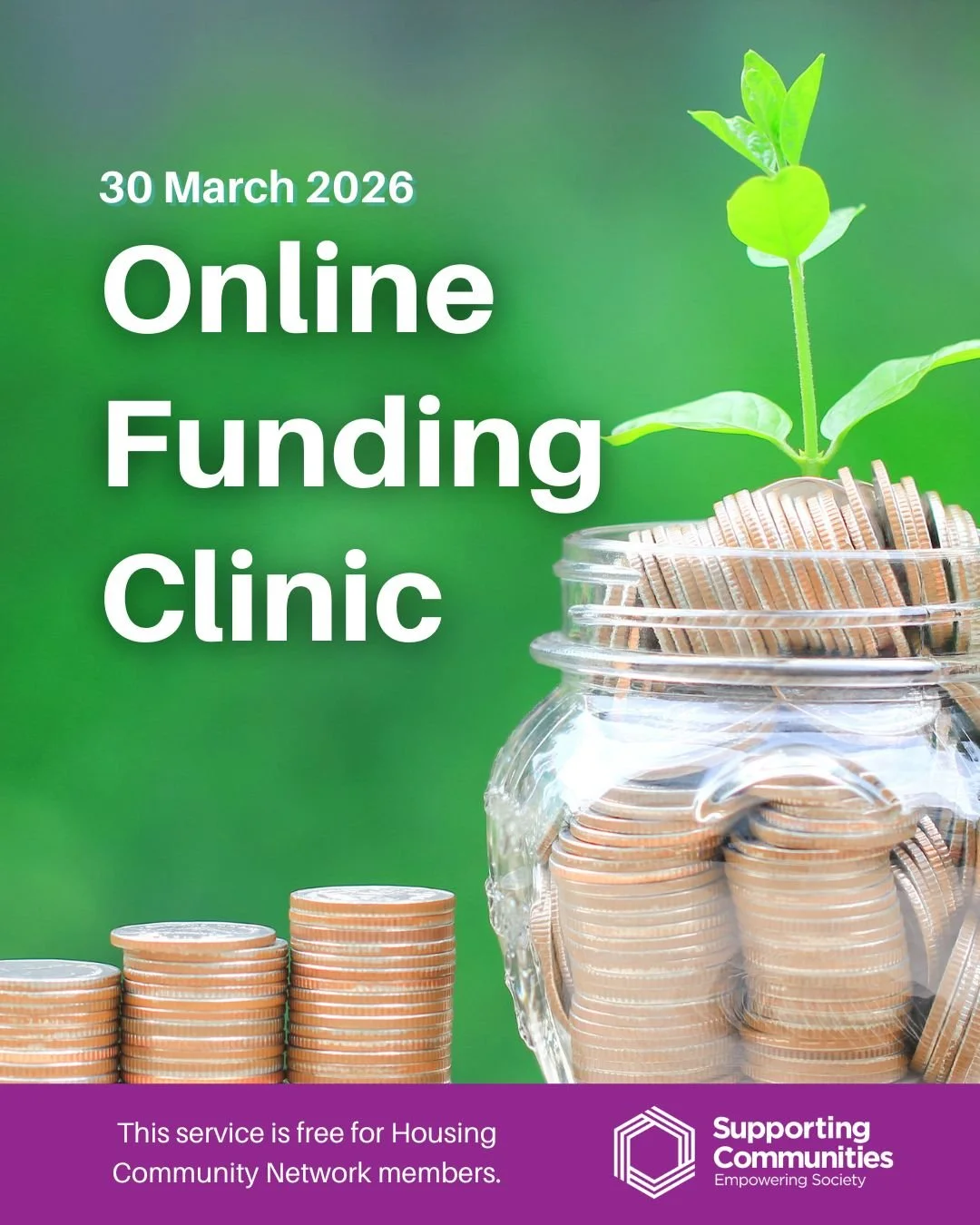Many in NI Still Not Ready to Cope with Online Benefits System
/Graphic from the Dept. of Communities Baseline Report shows 60% of respondents would need help or support to use the benefits service online.
A new report has confirmed what Supporting Communities already knows from working with people in communities every day. Significant numbers of the most vulnerable people in Northern Ireland do not have the digital skills they need to manage a Universal Credit application and claim online.
“I have been working in communities delivering basic digital skills training for over 5 years and have met people of all ages and abilities who lack the skills and the confidence to manage their financial affairs online. Fear of ‘getting it wrong’ or falling prey to fraudsters holds many people back from even trying. It takes time and experience as well as skills training to build the confidence needed to be truly competent online.”
- Stephanie McKillop, Digital Inclusion Officer
The Welfare Reform (NI) Claimant Baseline Surveys Report, published on January 16th, indicates some claimants will struggle with migration from legacy benefits to Universal Credit.
Graphic from the report showing reasons for not using an online benefits system.
The Department for Communities survey report includes information on respondents’ attitudes towards making legacy benefit claims in order to compare against the perception of Universal Credit to be measured in the future. Responses show that a large number of benefits claimants either do not or are not interested in doing certain tasks online, which indicates an impending crisis for those likely to migrate to Universal Credit, who will then have to cope with managing their claim online.
While 49% of survey respondents said that they use the internet every day, 27% said they do not use the internet at all. 44% of respondents say they would not be willing to make an application for a benefit or tax credit online and 60% of respondents stated that they would need help or support from someone to do this.
Get the Skills You Need
Supporting Communities has been working in partnership with the NI Direct Digital Inclusion Unit, to support the Go ON NI programme for many years. Our Digital Inclusion programme works with groups all over NI to master essential digital skills including everything needed to manage an online Universal Credit account. We have trained thousands of people in basic digital skills to date, but there is still constant demand for this important service. If your community group is interested in booking a digital skills course, please get in touch with Stephanie McKillop at stef@supportingcommunities.org to arrange training to suit you.
Concern about ‘natural migration’ and lack of protection
The Department for Communities has confirmed that the managed migration of legacy benefit claimants to Universal Credit will not commence in July 2019 as previously planned. Instead, this phase of the Universal Credit programme will be deferred until 2020. The managed migration process is scheduled to finish by the end of 2023.
Under the managed migration process, claimants are entitled to receive transitional protection if the amount received from Universal Credit is less than the amount of their previous benefits and tax credits. Delaying the managed migration process risks increasing the number of people who are likely to experience a change in circumstances that will trigger a ‘natural migration’ to Universal Credit. In this case, if the claimant is less well off on Universal Credit, they are not entitled to revive any transitional protection.
The baseline survey also revealed that despite this possibility of a change in circumstances triggering a switch to Universal Credit at any stage for most benefit claimants, the majority of respondents indicated that they had little or no knowledge of Universal Credit. 38% of respondents had heard about the benefit but knew nothing about it, while 23% have never heard of Universal Credit at all.
Get Advice
If you are concerned about your benefits changing over to Universal Credit, you should seek professional advice. If you know that you're going to be experiencing a change in your circumstances soon and are worried that this change will trigger a move to Universal Credit, talk to an experienced welfare adviser.
You can get advice from the independent Welfare Changes Advice Service operated by Citizens Advice, Advice NI and the Law Centre NI.
Call freephone on 0808 802 0020 (Monday to Friday, 9am to 5pm)
Visit your local Citizens Advice office or Advice NI independent advice centre











